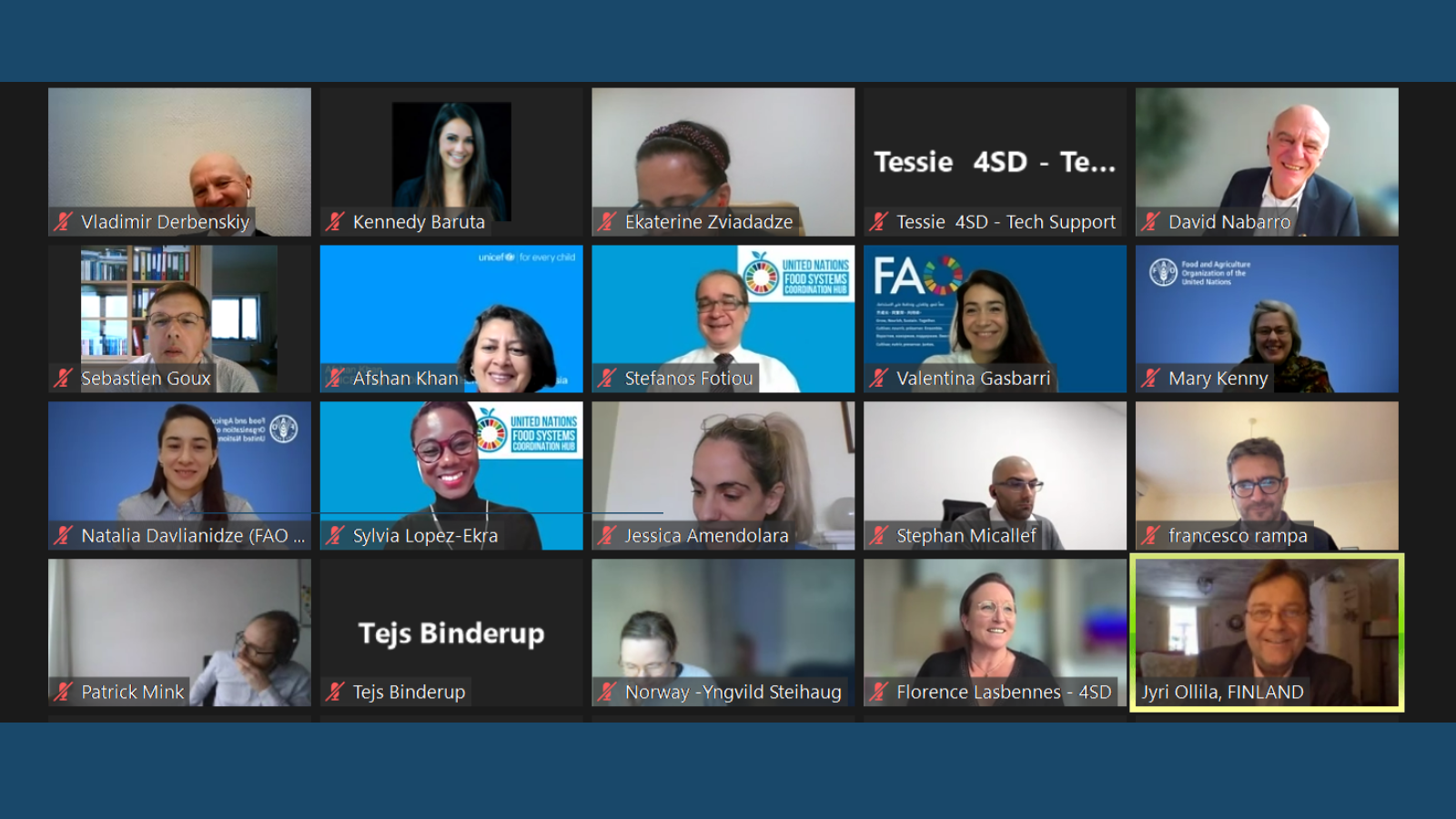SEED FUNDING JOINT PROGRAMMES
Egypt
Strengthening Sustainable and Resilient Food and Nutrition Systems in Egypt for SDG Acceleration




PROJECT TITLE | Strengthening Sustainable and Resilient Food and Nutrition Systems in Egypt for SDG Acceleration |
| Context | Egypt engaged actively in the 2021 Food Systems Summit process, convening a national dialogue and developing national pathways with recommended interventions for improving food security and nutrition by 2030. To enhance multi-sectorial coordination and spearhead the transformation process, the Government created a National Committee for Food and Nutrition Systems chaired by the Prime Minister and bringing together several ministries to coordinate joint actions. Strengthening coordination mechanisms, fostering multi-stakeholder partnerships, consolidating accountability structures, focusing on the availability of evidence, analysis, and data, are identified as key priorities to strengthen the food systems governance structure in Egypt. |
| PUNOs | WFP, FAO, UNICEF |
| Contribution to SDGs | SDG 2 Zero Hunger, SDG 3 Good Health and Well-being, 12 Responsible Consumption and Production. |
| Contribution to other SDG transitions | Climate, biodiversity, pollution |
| Duration | June 2024 – May 2025 |
| Expected financial leverage | $87,000 (PUNO co-financing) |
| Alignment with SG Call to Action | Policy integration; Food systems governance; Research, data, technology and innovation; Inclusive and participatory design; Private sector engagement |
| Outcomes | The JP contributes to strengthening policy and governance frameworks for food systems transformation and generating evidence and analysis on key dimensions of food systems to inform decision-making, supporting the work of the National Committee for Food and Nutrition Systems. The JP complements the government’s flagship program “Country Platform for the Nexus of Water, Food and Energy”, which provides a mechanism to mobilize climate finance and private investments. |
| Partners |
|
| Outputs |
|
Introducing the Food Systems Solutions Dialogues 2024

The United Nations Food Systems Coordination Hub is pleased to release the thematic plan for the 2024 Food Systems Solutions Dialogues, marking another significant step in our collective journey to revolutionize food systems worldwide. Since their inception in April 2022, the Food Systems Solutions Dialogues have been instrumental in addressing a diverse range of topics essential for transforming food systems, supporting knowledge exchange and collaborative action among National Convenor networks.
A platform for collaboration and innovation
Aligned with the UN Secretary-General’s Call to Action, the 2024 Food Systems Solutions Dialogues aim to translate insights and commitments generated from the UN Food Systems Summit +2 Stocktaking Moment (UNFSS+2) into concrete actions that drive sustainable, equitable, and resilient food systems. "These Dialogues are an important way that we connect with our National Convenors to learn about their experiences implementing their national pathways, the challenges and opportunities they face, and how the Hub and wider ecosystem of support can effectively support them," stated Stefanos Fotiou, Director of the UN Food Systems Coordination Hub.
Themes and objectives
The 2024 Dialogues will focus on six key themes in line with the six action areas outlined in the Secretary General's Call to Action.
- Elevating Private Sector Accountability within Food Systems Transformation
- Food Systems Governance
- Financing Food Systems Transformation to Achieve the SDGs
- Enhancing an Inclusive Participatory Design to Transform Food Systems
- Catalyzing Climate Action for Transformative Food Systems
- Incorporating Food Systems Strategies into National Policies
For more information on each theme, refer to the Food Systems Solutions Dialogue 2024.
Looking Ahead
The 2024 Food Systems Solutions Dialogues represent a pivotal opportunity to support the move from dialogue into action, reshaping global food systems for the better. Participation is by invitation only, primarily intended for National Convenors, government participants, UN Country Teams, and select actors of support. Summaries of the Dialogues can be publicly accessed here following each Dialogue. The official schedule of Dialogues will be released shortly.
For further information:
